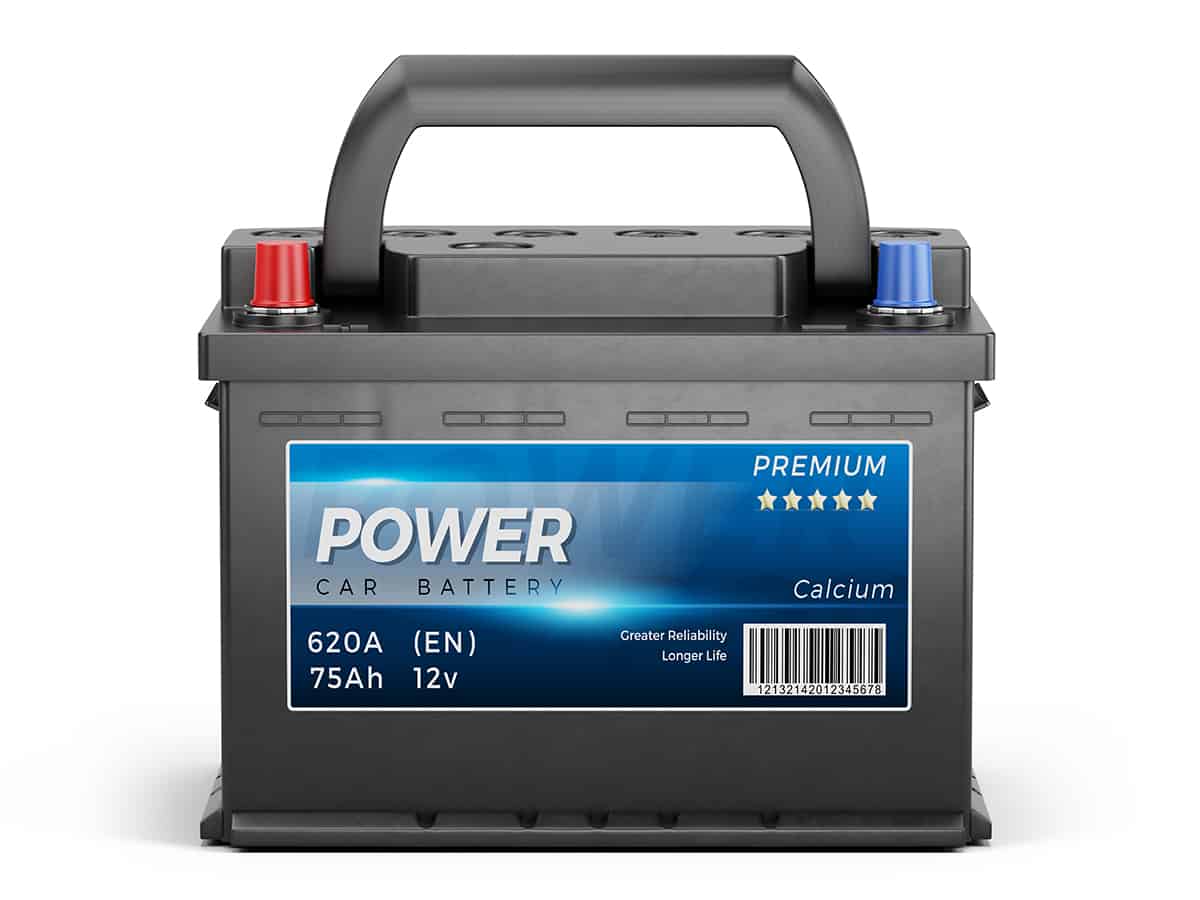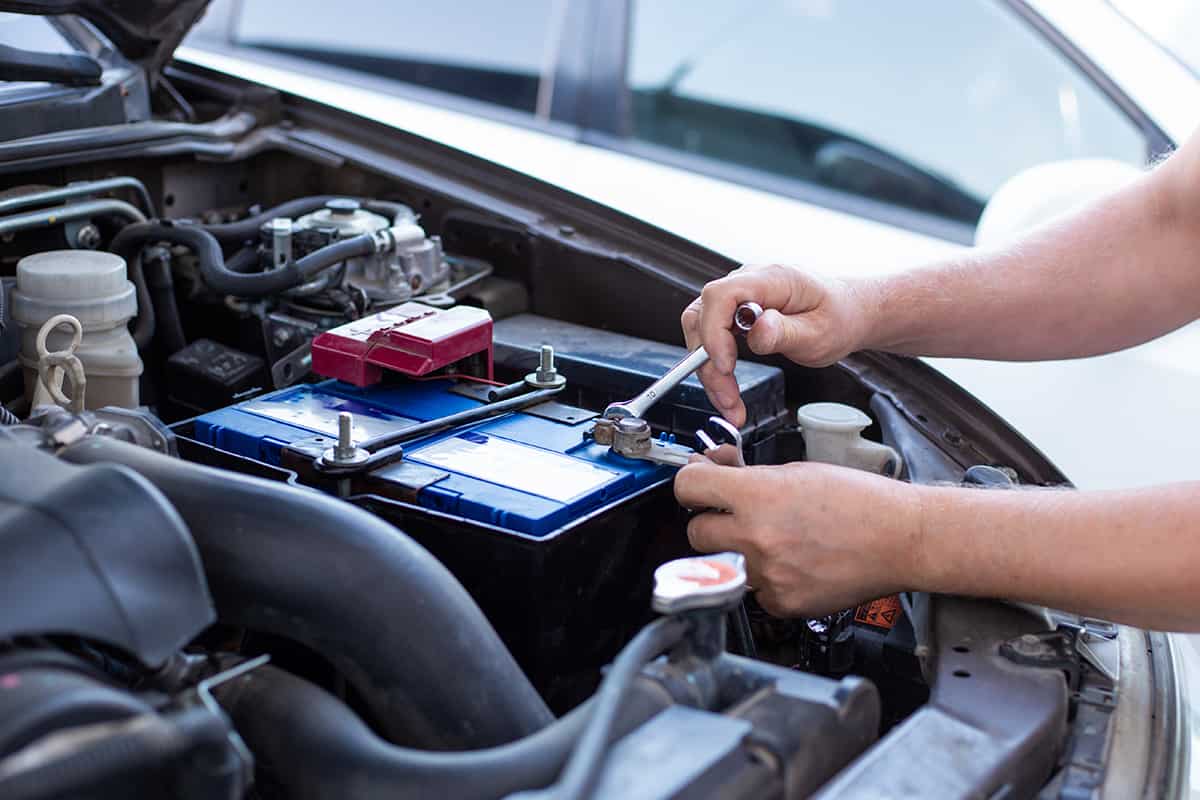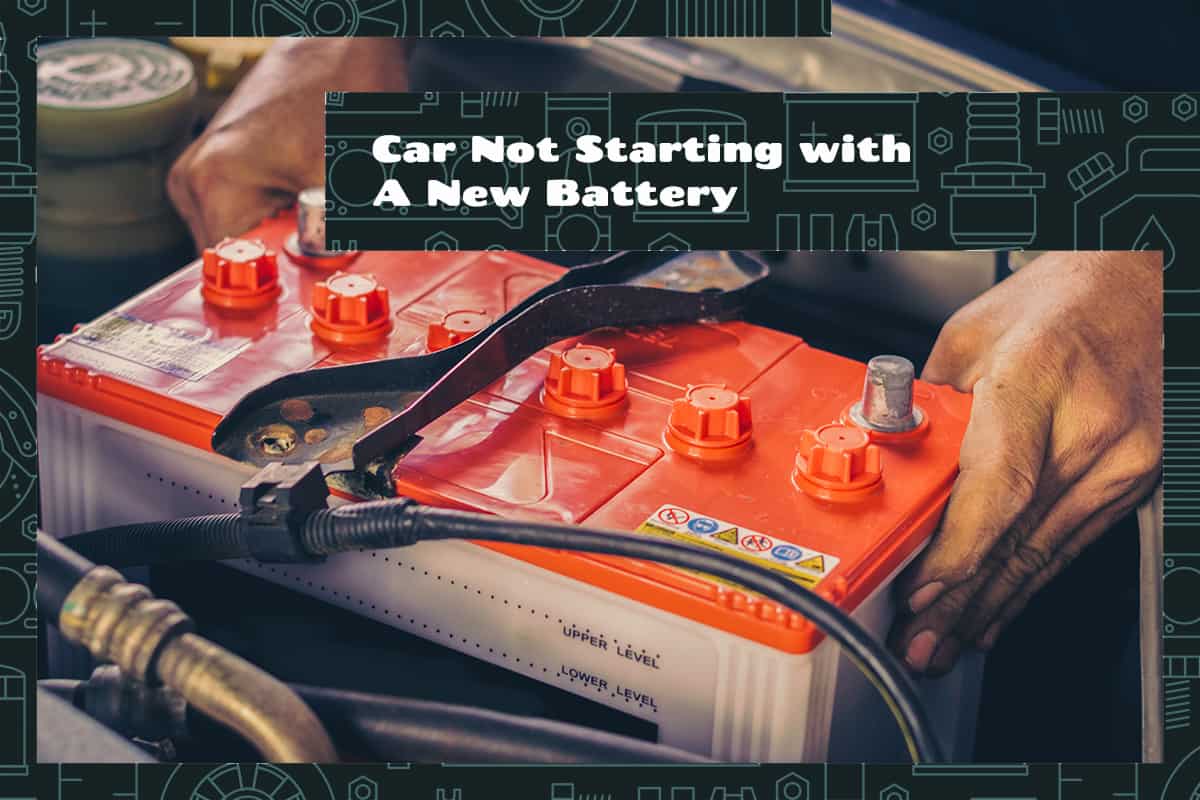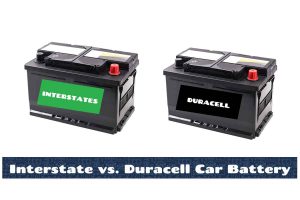Few experiences can be as perplexing as turning your car’s ignition only to find it won’t start—especially when you’ve just installed a brand-new battery. Most drivers expect a new battery to be the panacea for all their car start-up problems. After all, isn’t it logical that replacing the old, worn-out one with a fresh battery should resolve all issues? Unfortunately, the reality can sometimes be starkly different, throwing drivers into a conundrum.
Several factors can prevent your car from starting, even with a new battery:
- The new battery may have a factory defect.
- The battery might have been installed improperly.
- The new battery could be the wrong size or type for your car.
- There could be issues within your car’s electrical system.
This guide aims to simplify this complex issue, providing you with a comprehensive understanding of why a new battery might not start your car. We’ll delve into the various potential reasons, explore each one in detail, and offer pragmatic solutions for each scenario.
Understanding Car Batteries

Car batteries are integral to your vehicle’s operation. They provide the essential power needed for the starter motor to ignite the engine and also supply power to all the electrical components in your vehicle. This section will delve into the role of car batteries and their lifecycle to help you understand their significance.
The Role of Car Batteries
Your car battery stores electrical energy and supplies it to various car components, making it a critical element in the functioning of your car. This electrical storage unit feeds your vehicle’s starter, which in turn gets your engine running. It also powers all the electrical devices in your vehicle like the radio, lights, power windows, and more, even when the engine is off.
Every time you turn the ignition key, you’re relying on the battery to produce a burst of energy. This energy starts the engine, and once the engine is running, the alternator takes over to power the electrical systems and recharge the battery.
Car Battery Life Cycle
The lifespan of a car battery depends on several factors, such as the quality of the battery, the conditions it operates under, and how well it’s maintained. On average, a car battery lasts between three and five years.
A car battery starts its life fully charged, new, and ready to supply power. Over time, as the battery ages, it goes through countless cycles of charging and discharging. Each cycle slowly degrades the battery’s ability to hold a charge. This process, known as sulfation, is the leading cause of battery failure.
Eventually, the battery gets to a point where it can’t deliver enough power to start the engine, and it’s at this point you’ll usually choose to replace it. Replacing the battery seems like an easy fix to get your car running smoothly again. However, even with a new battery, you might encounter problems that prevent your car from starting.
Potential Reasons Why a New Battery Won’t Start a Car
Even with a new battery, a car might not start for various reasons. The issue can often be a simple one, easily overlooked during the installation process, or it could be a more complex problem related to other parts of the car’s electrical system. Let’s explore these potential reasons in detail.
1. Factory Defects
Even new batteries can sometimes be faulty right out of the factory. Manufacturing defects, although rare, can result in a new battery that won’t hold a charge or provide sufficient power to start your car.
These defects might occur due to problems during the manufacturing process, such as poor quality control, the use of substandard materials, or manufacturing faults that affect the internal components of the battery. Such defects can cause the battery to fail prematurely or immediately after installation.
2. Improper Installation
Installing a car battery may seem straightforward, but it can be more complex than it appears. If not done correctly, it can lead to several issues.
The battery might not be connected properly, with corroded or loose connections preventing the full power from reaching the starter motor. The battery terminals might not be cleaned properly before installation, or the battery cables might not be connected in the right order. Any of these mistakes could result in your new battery not being able to start your car.
3. Wrong Battery Size or Type
Using the wrong size or type of battery for your car can lead to problems. Car batteries come in different sizes, power ratings (measured in Cold Cranking Amps or CCA), and types (like conventional lead-acid, AGM, or Lithium-ion).
If the battery is too small, it might not provide enough power for the starter motor to ignite the engine. Conversely, if it’s too big, it might not fit properly in the battery tray, leading to improper connections. If you’re using the wrong type of battery, it might not match the car’s charging system, leading to under- or over-charging, both of which can prevent the car from starting.
4. Electrical System Problems
A car’s electrical system is complex and involves more than just the battery. Other components, like the alternator, starter motor, ignition switch, and the wiring connecting these components, play a crucial role in starting the car.
If any of these components are defective, they could prevent the car from starting, even with a new battery. For example, a faulty alternator won’t be able to recharge the battery while the car is running, and a defective starter motor might not be able to use the power from the battery to start the engine.
Solutions for Different Scenarios

Understanding potential issues can help you find solutions. In this section, we’ll discuss practical ways to address each scenario, ranging from troubleshooting factory defects to dealing with electrical system problems.
1. Dealing with Factory Defects
If you suspect your new battery is defective out of the box, the best course of action is to have it tested. Many automotive parts stores offer free battery testing and can confirm if your battery is indeed faulty. If it turns out the battery is defective, you should be able to exchange it for a new one under warranty.
2. Correcting Improper Installation
If the battery is not installed correctly, you’ll need to rectify the installation mistakes. Make sure the battery terminals are clean and the connections are secure. Ensure the positive and negative cables are connected to the correct terminals—positive to positive (usually marked with a plus sign or red color), negative to negative (usually marked with a minus sign or black color). If you’re unsure about the process, consider having the battery installed by a professional.
3. Resolving Issues with Wrong Battery Size or Type
If the battery is the wrong size or type for your car, the solution is to replace it with the correct one. Refer to your car’s manual or consult with a car parts professional to determine the appropriate battery size and type for your vehicle. Ensure the battery fits properly in the battery tray and that it meets the power requirements of your car.
4. Addressing Electrical System Problems
When dealing with problems in your car’s electrical system, it’s often best to consult with a professional, as these systems can be complex. However, some common issues you can check for include:
- Alternator Problems: If the alternator isn’t working correctly, it won’t be able to recharge your battery. Look for signs like dimming lights or a battery warning light on your dashboard. A malfunctioning alternator requires professional repair or replacement.
- Starter Motor Issues: Listen for a clicking sound when you turn the key. If the battery is working but the car isn’t starting, it could be a faulty starter motor. A professional will need to address this issue.
- Ignition Switch/Wiring Problems: If the car isn’t responding at all when you turn the key, the ignition switch or wiring could be at fault. This issue is also best left to professionals.







